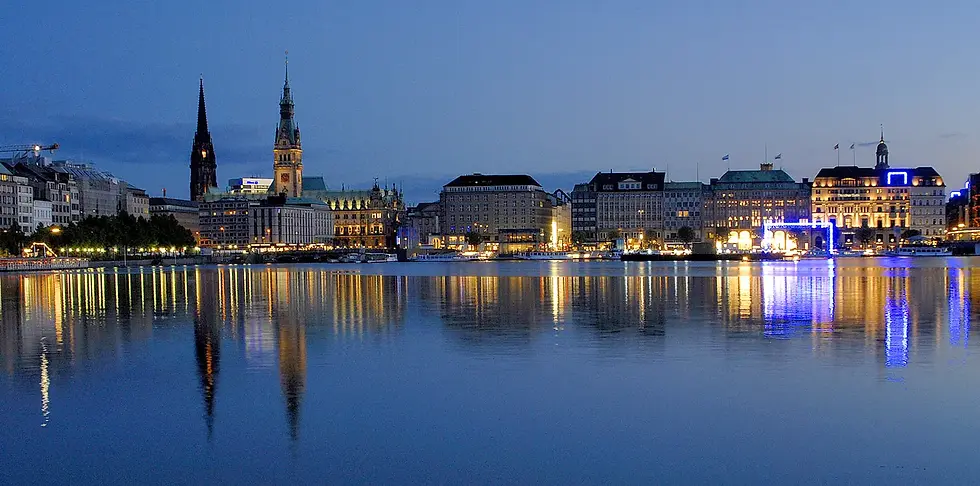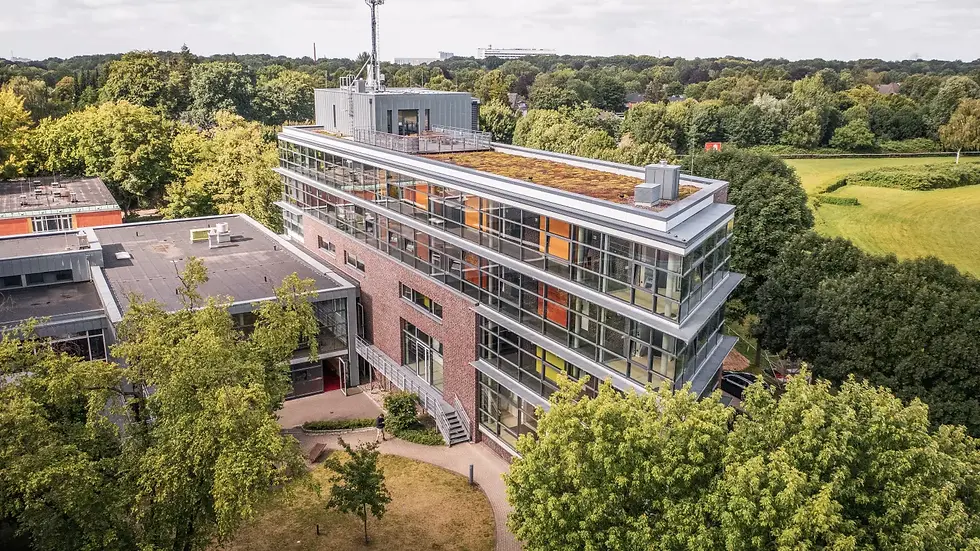YE “EURODANCE”, HAMBURG, Germany/05-13 of November 2023
- nicckolas44
- Sep 18, 2023
- 5 min read
Updated: Jan 1, 2024
Project Name: Youth Exchange “EuroDance”
Activity: Youth Exchange in Germany. The “EuroDance” project will involve 25 participants from Spain, Cyprus, Germany, Ireland and Romania, from 05-13 November 2023 October 2023.
Youth Exchange: 05-13 November 2023 (including travelling days)
Accommodation: Hamburg (Germany)
Venue: Hostel Jugendherberge Hamburg „Horner Rennbahn“? Rennbahnstraße 100, 22111 Hamburg, Germany. Each room has a bathroom inside. The division for the rooms will not be based on countries, so that we will have a multicultural exchange. https://www.jugendherberge.de/jugendherbergen/hamburg-horner-rennbahn/
Food: The venue of the training will serve the participants with 3- times-a-day meals and snacks and beverages for the coffee breaks.
Report from our participants
Name of Project: Eurodance
Dates: 5-13/11/2023 Place: Hamburg, Germany Other participated countries were: Germany, Spain and Romania.
The main focus of the program was:
1. To foster dialogue among cultures and respect for diversity.
2. To identify common elements shared among young people to build a common sense of belonging to Europe.
3. To underline the role of dance and music as tools for communication without distinction of nationality, race, gender, age and religion.
4. To raise awareness of European cultures through dance and music.
5. To sensitise participants to other cultures and countries by giving them the opportunity to build networks of international contacts.
6. To promote the inclusion and active participation of young people with fewer opportunities in the project.
7. To raise awareness of the Erasmus+ program and the opportunities it offers to young people.
05/11: Arrival of Participants
Our first meal together

06/11&07/11:
On the first & second day of the project we had a lot of introduction games so that we could get to know each other and break the ice. We wrote down and shared how each of us are going to contribute during those days, what our fears are and lastly, our expectations. One of the workshops was “Key Concepts”, where we had to present in the form of video, photography, theatre or drawing the following words: “Culture”, “Multiculturalism” , Inteculturality” and “Cultural Diversity”. In this activity we got to team up with people from different countries and discuss our version of the words, that lead up to us learning more about each others’ cultures, improving team building and creativity.

Introducing ourselves
08/11
The following day, we had to debate with other participants about different issues regarding our cultural identity and how we view ourselves. We ended with a preparation of the workshops about culture and traditional dances that were going to happen the next day.

Discussing
09/11
On the 9th of November, we got to visit “Papito Chango”, a dance school in Hamburg. There, we got to practice different dances from each others’ countries as well as present our own. After that, we had free time to explore the city.
Cypriot team showing our traditional dances
10/11
The next day, we had a free schedule where we had the opportunity to explore more of Germany. Some of us went to Lubeck, Berlin, Bremen or stayed in Hamburg.
Lubeck, Germany
11/11
On the 11th, we had sessions with a hip-hop instructor, which was a 21 year old Erasmus participant that works as a professional dancer. She is teaching young kids the magic of dancing back in Spain, so she was already familiar with teaching. It was an incredible experience both for us and for her.

12/11 Last day for everyone in the project.
It was a very emotional day as we got to create videos that summed up everything that happened during our time together. In the afternoon, the hosting organization threw a farewell party, along with a small ceremony for the Youthpass certificates. Most importantly, all countries had their intercultural nights together, making for an excellent atmosphere full of tasty new food, beverages, and lots of fun! Lastly, along with our Youthpasses, we were given some small souvenirs.
We made Egg/Lemon Soup (Αυγολέμονη), we brought Shoushouko, Loukoumia, Pitta Satzis, Coconut/Chocolate sweets and biscuits.
What our participants said for the PDA
Stefani Anastasiou:
Dancing in a multicultural project expanded my horizons. We learned traditional dances from different countries, which was not just a fun workout but also a peek into diverse global traditions. Mastering the steps taught us teamwork, coordination, and the history behind each dance. It wasn't just about the moves it created bonds and friendships that went beyond cultural differences.
- Nicolas Misetzis
It was an amazing experience that helped me realize how our differences with other countries can be breached through the power of dance. Different dances, but at their core, all of them were based on expressing your feelings, whether that was by clapping, stomping, spinning, singing. A unique experience that helped me make new friends, learn new dances, and most importantly, have fun!
- Savvas Zavros:
In this project I really enjoyed learning about dances from different countries. Throughout the program we had a variety of discussions cultures and modern topics. The main event was when we gathered in a dance studio and each country presented their own traditional dances. Despite that we also had the beloved classic intercultural night. I would love to experience this again. Thanks for the opportunity.
- Aliki Michael
During the erasmus project in Germany, we had the opportunity to meet new people from various backgrounds and cultures. Throughout the week we discussed about a lot of things, including topics that trouble society nowadays and how we can have an impact on it. Despite that, we also talked about more personal things like our travelling experiences. During the main event, we exchanged our traditional dances and then shared the steps so everyone could join. We had a lot of fun while becoming a part of so many different cultures through dancing in such a small period of time. Additionally, a huge enjoyment was the big cultural night where we learned new facts about the other countries, and tried traditional tasty foods. Projects like this are a great opportunity to gain knowledge, broaden our horizons, connect with people and make new friends.

Food: participants will have 3- times-a-day meals and snacks and beverages for the coffee breaks.
4 youngsters (ages 18 to 30 years old) and one leader will be selected from our organisation.
PROFILE OF PARTICIPANTS
- The Youth Exchange will be attended by 25 participants from 5 different countries: Germany, Spain, Cyprus, Romania and Ireland,
- 5 participants per partner organizations (group leader included),
- Aged 18-30; except group leaders,
- Balanced group between boys and girls,
- 2 participants with fewer opportunities: including young people of migrant origin or refugees, in particular newly arrived migrants, persons belonging to ethnic or national minorities, persons with difficulties in linguistic adaptation and cultural integration andhaving not previously participated in the Erasmus+ programme,
- Basic knowledge of English,
- Participants who like dancing to ensure active participation in the project.

Brief Description of the Project
European society is becoming increasingly heterogeneous, multi-ethnic and multicultural, due to its own internal diversity and new demographic flows responsible for the presence of a growing number of migrants among us. In this context, conducive to the emergence of confused and sometimes contradictory identities, the necessary construction of a European identity is a challenge.
The acquisition of a true sense of belonging to Europe implies the learning of certain skills and competences by young people, such as respect for cultural diversity, tolerance attitudes and understanding of other cultures. Cultural learning should present culture in different ways and link it to everyday experiences, education and art
Thus, discovering and understanding our culture allows us to know each other as individuals, communities and societies, through the dialogue and collaboration of all citizens. The active participation of young people is essential to preserving culture, fostering social integration, improving intercultural understanding and a sense of belonging to the community.
Cultural exchanges, through dance and music, become complementary aspects to the improvement of intercultural relations. Dance and music are an excellent approach to developing awareness and understanding of intercultural differences and similarities that allows access to cultural learning in the form of fun and entertainment.
Through dance and music, young people can open their minds and express themselves naturally without fear of rejection or judgment because rhythms, instruments or all forms of expression carry cultural symbols.

Objectives
The main objectives of this project are therefore:
1. To foster dialogue among cultures and respect for diversity.
2. To identify common elements shared among young people to build a common sense of belonging to Europe.
3. To underline the role of dance and music as tools for communication without distinction of nationality, race, gender, age and religion.
4. To raise awareness of European cultures through dance and music.
5. To sensitize participants to other cultures and countries by giving them the opportunity to build networks of international contacts.
6. To promote the inclusion and active participation of young people with fewer opportunities in the project.
7. To raise awareness of the Erasmus+ program and the opportunities it offers to young people.

Application of participation in our program in this link: https://forms.gle/iRqNGcN9woxcuMfK6

























Comments